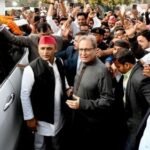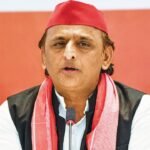
ARABIAN TIMES NEWS NETWORK
In a world where ambition often meets limitation, Dr. Mahesh Agarkar has consistently pushed boundaries, creating an extraordinary blueprint for global entrepreneurship. With operations spanning India, the UAE, and beyond, Dr. Agarkar exemplifies the spirit of modern leadership—strategic, resilient, and deeply committed to both business and social impact.
Hailing from Mumbai, India, Dr. Agarkar holds a Doctorate in Business Administration from Glory University, USA. His academic background forms the foundation of his multifaceted approach to enterprise, where theory meets real-world execution. Over the years, he has transformed himself into a diversified business magnate, with interests ranging from real estate and automotive to maritime, investment, agriculture, and foreign exchange.
As the proprietor of One & Only Developers & Builders in Mumbai, Dr. Agarkar has become a driving force in the Indian real estate sector. His developments are known for architectural sophistication, structural integrity, and lifestyle-centric design. The firm is synonymous with quality and innovation, offering premium residential and commercial projects that elevate urban living.
Parallel to his real estate ventures, Dr. Agarkar leads Autokingz, a reputable name in the pre-owned luxury automobile market. By combining affordability with trust, Autokingz has made high-end cars accessible to a broader audience while delivering unmatched customer service.
His global footprint expanded further with Kaizer Ship Management Company, based in Dubai. The company specializes in vessel operations and crew logistics, playing a key role in streamlining international maritime services. Kaizer supports trade routes across the Middle East and South Asia, reinforcing Dr. Agarkar’s status as a cross-border business strategist.
Dr. Agarkar also serves as Advisor to Almaktoum Investments Company and Director at Almaktoum Trading & Investments, where he provides strategic insights into portfolio diversification across commodities, real estate, and bilateral trade between India, Dubai, and Iran. His reputation as a financial architect is further cemented by his work as a certified Forex and finance broker in Dubai, where he helps clients navigate complex currency markets with precision and foresight.
In agribusiness, he is a crucial player in India’s global fruit and vegetable export pipeline, connecting rural farmers with international markets. His supply chain expertise ensures quality, transparency, and profitability for all stakeholders, supporting sustainable development at the grassroots level.
Beyond business, Dr. Agarkar holds the position of President of the World Human Rights Council (Maharashtra Chapter), where he advocates for equality, social justice, and community empowerment. His humanitarian efforts are a testament to his belief that true leadership is measured not only by profit but by purpose.
A digital thought leader with over 1.1 million followers on Instagram (@maheshagarkar007), he shares motivational insights, business philosophies, and glimpses into his life as a global entrepreneur. As a member of the World Business Council in Dubai, he remains an influential voice in international business circles.
Dr. Mahesh Agarkar is not just building companies—he’s building a legacy. His journey from Mumbai’s entrepreneurial roots to global prominence is a story of vision, courage, and unwavering commitment to excellence.










